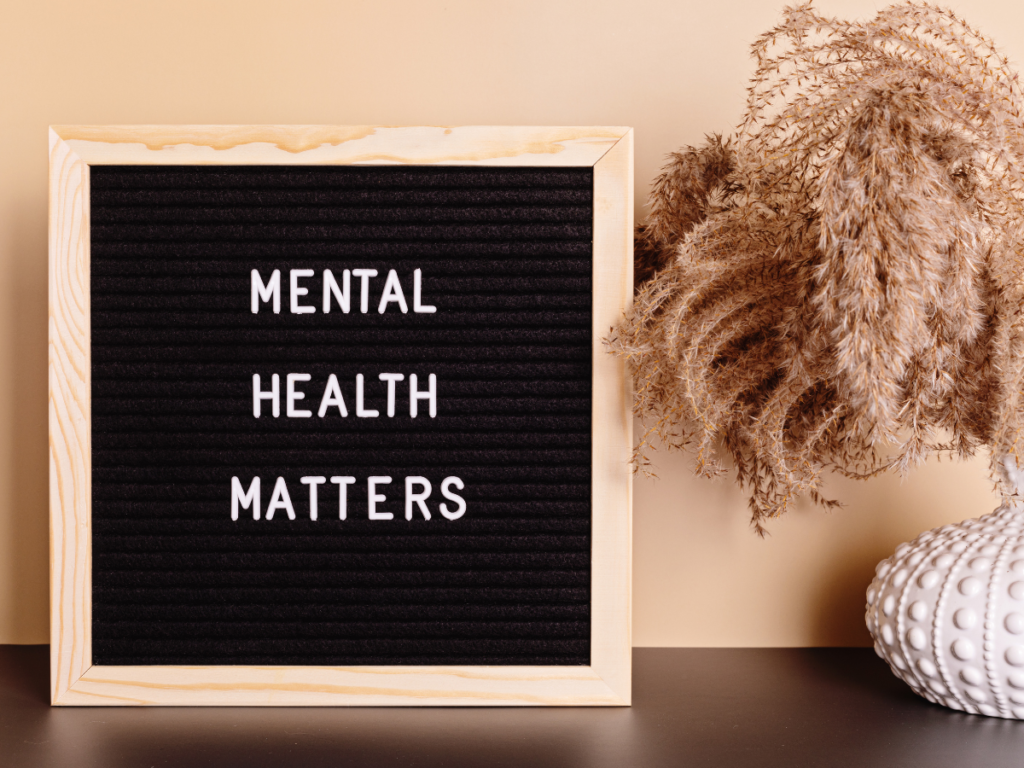Introduction
College life can be both thrilling and challenging, especially when it comes to managing mental health. As a college student, it’s crucial to prioritize your well-being amidst academic pressures. These practical mental health tips to help you maintain balance and cope with stress throughout your educational journey.
As summer ends and you head back to your college campus, getting back into the academic routine can be tough. College is an exciting time, but it also brings challenges like money worries, academic stress, feeling homesick, and dealing with pandemic-related issues such as social isolation. All these can affect your mental health.

Study from the American College
A 2021 study from the American College Health Association found that 48% of college students felt significant psychological stress, 53% were lonely, and 26% had thought about suicide. It’s crucial for students to take care of their mental health through self-care to reduce stress, avoid burnout, and overall enhance well-being.
According to the Mental Health First Aid (MHFA) curriculum, self-care helps you adapt to changes, build strong relationships, and bounce back from setbacks.
Here are some simple tips to help you or someone you know practice self-care and maintain mental well-being in college.
Stick to a schedule and stick with it
In college life, days usually follow a routine: breakfast, college, activities, dinner, and homework, repeat. College is different, with classes at various times, evening club meetings, and flexible wake-up times. However, having a routine can reduce stress and boost focus. Try to wake up, eat, study, and exercise around the same times daily. This helps you feel in control, lowers stress, and enhances focus.
Get Enough Sleep for Mental Health

According to Harvard, over 50% of college students get less than seven hours of sleep per night. This can lead to symptoms of depression. Prioritizing sleep can positively impact academic performance, concentration, and daytime alertness.
Exercise Regularly for Mental Health

The U.S. Department of Health and Human Services suggests adults aim for at least 2.5 hours of exercise weekly, which is about 20 minutes per day. Exercise not only keeps you physically fit but also brings mental health benefits, like increased happiness and reduced risk of diseases.
Walking around campus, hitting the gym, or joining a fitness class are great ways to stay active. Choose an exercise you enjoy for it to truly feel like self-care, as recommended by MHFA.
Maintain a Nutritious diet for Mental Health

A well-balanced diet is not just good for your body but also crucial for mental well-being. It helps clear thinking and attention, while processed foods can contribute to inflammation, potentially leading to mood disorders. Stress and depression can impact eating habits, creating a cycle.
Stay Hydrated for Mental Health

Given that your brain is composed of 73% water, maintaining proper hydration is crucial for ensuring healthy brain function. Consequently, insufficient water intake can result in a shutdown of the brain, manifesting symptoms associated with depression and anxiety. Use the Hydration Calculator from Everyday Health if you’re unsure how much water you need for good health.
Practice Mindfulness, Meditation, and Appreciation
According to Medical News Today, mindfulness helps you focus on the present moment by paying attention to thoughts, feelings, and sensations. Meditation is one way to do this, offering benefits like stress management, increased self-awareness, patience, tolerance, and better sleep.
To practice gratitude, focus on things you’re thankful for. It improves relationships, brings joy, and even strengthens your immune system.
Tidy Up
Cleaning and decluttering provide a sense of control, boost mood, and reduce anxiety. College students often share small dorms, and it’s easy for things to get messy. Create a chore list to keep your living space clean, turning it into a stress-free haven. Making a self-care plan is useful for staying on track.
Conclusion
In summary, college life is a mix of excitement and challenges. It’s important to take care of your mental health, especially considering a 2021 study that found many students feel stressed and lonely. Stick to a routine, get enough sleep, and exercise regularly. Eat well, drink water, and keep your space tidy.
Trying mindfulness and gratitude can also help you maintain a balanced mind. Always remember, looking after your mental health is key to a successful college experience.



